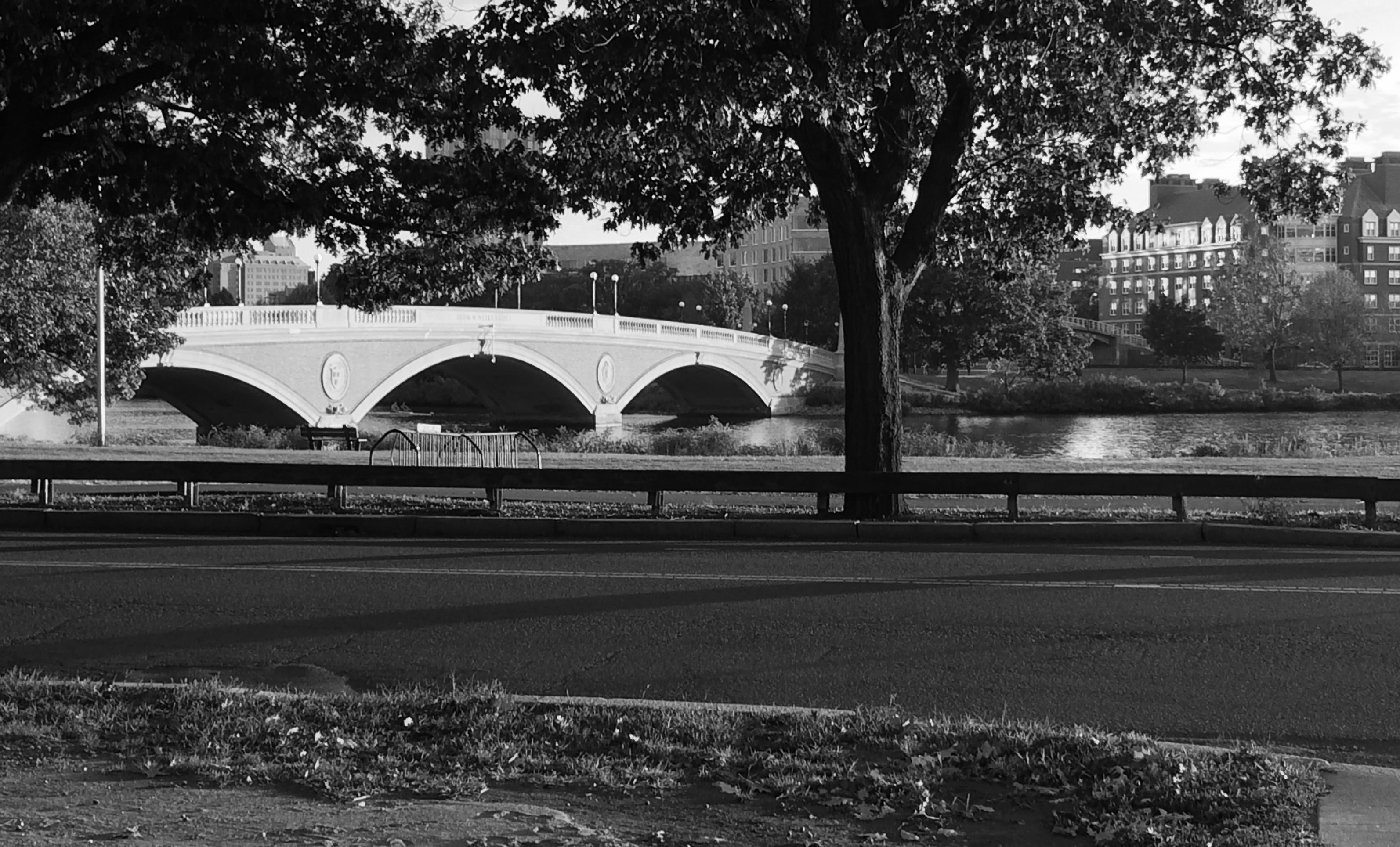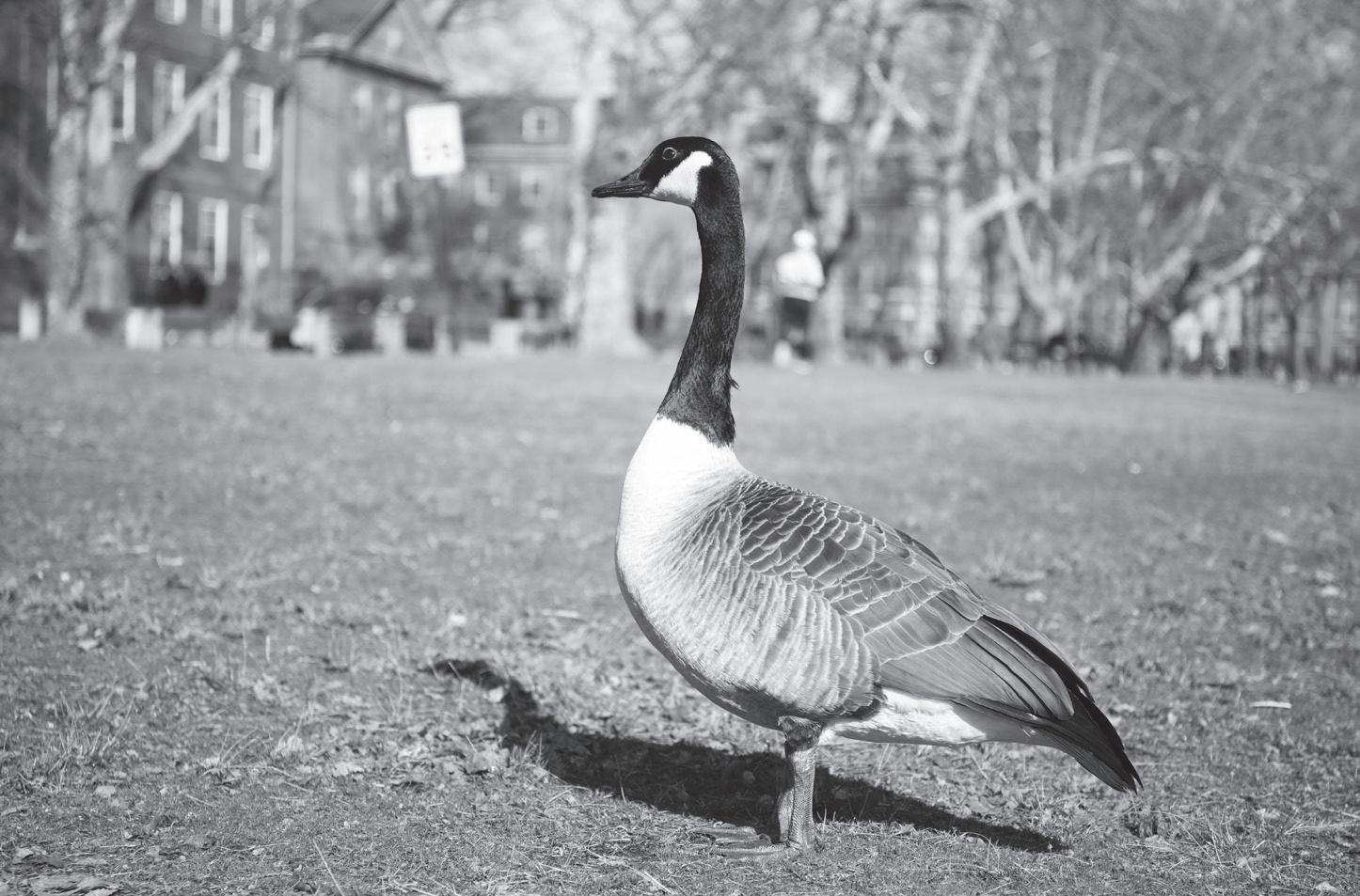PAGE 3
THE HARVARD CRIMSON | MARCH 9, 2020
Women’s Center Puts On Tenure Review Not to Women’s Week Events Comprise Individual Cases GAY FROM PAGE 1
By JESSICA LEE and CHRISTINA T. PHAM CRIMSON STAFF WRITERS
At the Harvard College Women’s Center’s 14th annual Women’s Week, eight student-led events celebrated the turn of the decade with the theme “New Visions,” in honor of International Women’s Day. The Women’s Center has historically hosted Women’s Week to facilitate conversations surrounding intersectionality and women’s and gender issues. The theme “New Visions” addresses the changing ways in which society discusses gender issues — while also looking forward to how women’s roles will manifest in the future, according to a post on the Women’s Center’s Facebook. Student organizations spearheaded a variety of events throughout the week, ranging from panels to social dance lessons to self-care. Madison L. Fabber ’22 — who moderated a Women’s Week panel and helped organize the Harvard Ballroom Dance Team’s event — said she think Women’s Week is “really important.” “It gets us this space and this dialogue for so many people to come together and explore gender and identity through all these interesting facets,” Fab
ber said. The Albanian Leadership Initiative Series held a conversation Tuesday titled “From Montenegro to the Red Carpet: A Life of Giving” with model and philanthropist Emina Cunmulaj, who spoke about social activism and women’s empowerment. Later that evening in Emerson Hall, Latinas Unidas assembled a group of panelists
I think it’s really wonderful that we as women are awakening to our natural feminine energy. Stephanie Javier Extension School Student
— including Amira Al-Subaey, an organizer for the Massachusetts Immigrant & Refugee Advocacy Coalition — and Harvard students to discuss women of color in politics. At a panel and social dance lesson Friday called “Samba Rolls and Gender Roles,” officers and coaches from the Ballroom Dance Team discussed how they have been affected by gender norms in the
ballroom and how those standards are changing. The Women’s Center wrapped up Women’s Week on Saturday with an event about “How Women Are Changing the Game,” to celebrate the achievements of pioneering women who have been overlooked in history. Harvard Ballroom Dance Team Captain Olga Kiyan ’22 said she thinks that women are often “made to feel like they’re not enough” and consequently “start to doubt their abilities.” “Starting those conversations and being like, ‘You’re not alone. You are enough, and what you’re doing is amazing,’ and having those types of discussions, I think, is important to help combat that,” Kiyan said. Stephanie Javier, an Extension School student who attended the ballroom event, said Women’s Week helped her reflect on women’s identities. “I think that it’s really wonderful that we as women are awakening to our natural feminine energy and recognizing and acknowledging how powerful it is: this very nurturing force, you know, this very nurturing energy,” Javier said. “And to be a part of that is quite an honor.” jessica.lee@thecrimson.com christina.pham@thecrimson.com
Undergraduate Council Holds Meeting Via Video Platform By SHARON XU CRIMSON STAFF WRITER
H arvard’s Undergraduate Council held its weekly general meeting Sunday over the video conferencing platform Zoom due to coronavirus concerns. Council meetings usually take place Sunday at 4 p.m. in the Isaacson Room in Smith Campus Center. But this Sunday, representatives joined the general meeting virtually from the comfort of their dorms, house dining halls, and, in the case of UC president James A. Mathew ’21, even a Panera Bread. “On account of recent developments regarding COVID-19 in the Boston area, this week’s UC General Meeting will be conducted via the telecommunications platform Zoom,” UC secretary Nicholas J. Brennan ’23 wrote in an email to Council representatives Saturday night. At Sunday’s online meeting, representatives discussed the week’s Grants Pack, which allocates funding for student orga
nizations. They also discussed a proposal to integrate College X Change, an online shopping platform for students, with my.harvard, an online portal that houses students’ academic and personal information as well as Harvard’s course registration system. UC Finance Committee chair Rukmini “Mini” Ganesh ’22 and UC treasurer Noah Harris ’22 sponsored the legislation about the Grants Pack, which the Council unanimously adopted. In the Grants Pack, the Council allocated $16,000.15 to various student organizations. While the Council discussed the Grants Pack legislation, Lowell House representative Rachel L. Reynolds ’22 raised questions about funding in light of student organizations’ event cancellations due to coronavirus. Ganesh said some student organizations have already cancelled their grant requests due to coronavirus. “If they’re no longer holding
the event, I just zero out their application,” Ganesh said. UC Social and Residential Life Committee Vice Chair David Y. Zhang ’23, UC Parliamentarian and Historian Soyoun “Soy” Choi ’23, and Harris sponsored the legislation on the College X Change program, which the Council also unanimously adopted. The Council will work with Harvard University Information Technology to integrate College X Change with my.harvard so students can easily access the site. As an online shopping platform, students can use College X Change to find more affordable goods. The site, which is already sponsored by the UC, includes course materials, test preparation books, event tickets, dorm supplies, technology, and clothing among its offerings. The Council will not have its weekly meeting next Sunday due to spring break. sharon.xu@thecrimson.com
Gay also said she will not examine individual tenure cases, including the University’s decision to deny tenure to Romance Languages and Literatures associate professor Lorgia García Peña, as a part of the review. Hundreds of students and ethnic studies scholars within and outside Harvard have condemned the University for its decision to deny García Peña tenure. Asked if she would examine how candidates’ race and gender impact tenure outcomes, Gay said such factors are not bases for evaluation in the tenure process. Aside from examining tenure, Gay is currently engaged in a number of other administrative proceedings. FAS is currently reviewing the culture and structure of Harvard’s Athletics Department. Gay said she hopes FAS will be able to share a report on
I think it’ll take as much time as it takes to get it right. Claudine Gay Dean of FAS
conducting the athletics study, Mercer, has finished collecting data regarding student athletes’ experiences and the department’s structure and will continue to collect data regarding the department’s organizational structure, according to Gay. Gay’s administration is also currently conducting three major searches: a search for faculty specializing in ethnic studies, a search for the next Athletics Director, and a search for the next
dean of the Division of Continuing Education. At least ten ethnic studies faculty candidates will visit Harvard to give talks and meet with faculty and students in the coming weeks, according to Gay. After all ten scholars visit campus, the search committee will begin to consider which four candidates to hire. Gay said the Athletics Director search committee is currently assessing the needs of “constituencies and stakeholders.” She said there is no current timeline for the search. “I think it’ll take as much time as it takes to get it right,” Gay said. The DCE dean search committee is nearing the conclusion of its “listening” phase, according to Gay. kevin.chen@thecrimson.com
Harvard Animal Law and Policy Clinic Files Supreme Court Brief By KELSEY J. GRIFFIN CRIMSON STAFF WRITER
The Harvard Animal Law and Policy Clinic filed an amicus brief to the Supreme Court on Thursday supporting a Center for Biological Diversity-led challenge to the Trump administration’s wall along the Mexico-United States border. The Center for Biological Diversity filed a petition for certiorari on Jan. 31, asking the Supreme Court to review six decisions by the U.S. Department of Homeland Security which allowed the Trump administration to waive over 40 federal laws that would slow down the construction of a border wall. The Law School clinic represents the North American Butterfly Association and the National Butterfly Center — who manage a refuge along the border — as amici curiae in the case. Their brief claims the waivers DHS approved subvert laws that protect endangered species such as butterflies and moths. “This includes irreparably harming dozens of rare animal and plant species that inhabit the Lower Rio Grande Valley, and forever destroying the already extremely fragile ecosystems on which they depend,” the brief reads.
Transformative coverage.
The Crimson thecrimson.com
the athletics study with Harvard affiliates this spring. The outside consulting firm
Law Student Ashley Maiolatesi said the proposed border wall will differ from the barriers previously in place and could harm animals living in the area.
That eliminates over 13,000 acres of viable habitat along the Rio Grande Valley right now. Ashley Maiolatesi Harvard Law Student
“It’s going to be made of steel and metal and be completely solid, and it’s going to have stadium lighting around the top and so that affects a lot of animals in their migration patterns and how they breed and travel and all sorts of things like that,” Maiolatesi said in an interview. “Anything that is like a terrestrial animal — like the endangered ocelot that lives in that area — it can’t obviously get past this 36-foot high wall,” she added. “That is a huge issue because these animals are already so endangered.” Maiolatesi also said constructing the wall would ne-
cessitate clearing land on either side of the border. The amicus brief describes the proposal for this 150-feet-wide clearcut area as an “enforcement 10 zone” and claims it would destroy an estimated 20 miles of habitat for each mile of the wall built. “That eliminates over 13,000 acres of viable habitat along the Rio Grande Valley right now,” she said. The brief mentions additional concerns about the proposed wall, including the lack of a sloped escape route for animals in the case of fire or flood and an increase in danger, pollution, and erosion due to highspeed patrol vehicles. Maiolatesi said the Law School clinic hopes to raise awareness about the alleged lack of research into the potential consequences of the proposed wall. “None of the environmental assessments or any paperwork was filed on what these ramifications would be if these changes to the law were made,” she said. “We wanted to really bring to light the animal aspects, and how this was going to be affecting animals in the area throughout the United States and Mexico.” kelsey.griffin@thecrimson.com




